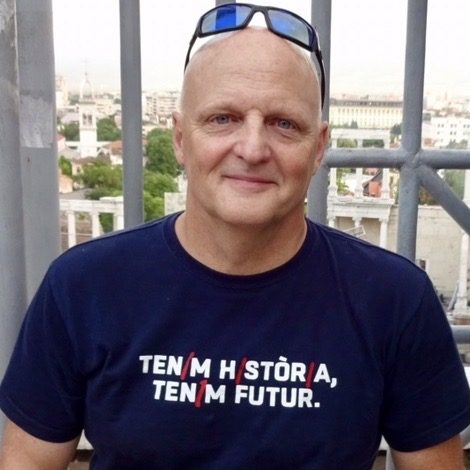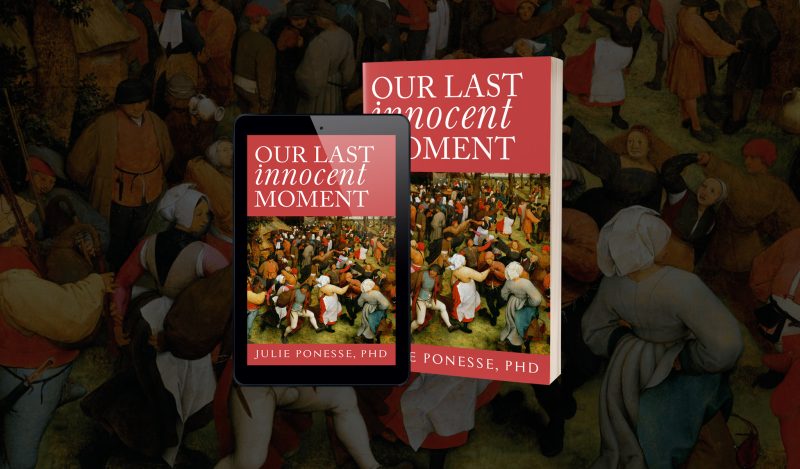The text below is a translated and expanded version of an interview with me by the Italian journalist Martina Pastorelli published on 3 August 2023 in the daily La verità, a piece that was itself a much abridged version an recorded interview done on July 26th
In the West we are being subjected to the “Politics of Fear,” something previously seen in Italy with the “Strategy of Tension” (approx. 1968-1982), in which the government attacks its own population, or “covers” for others that do, with the goal of creating a climate of widespread fear that will induce the people to accept certain, otherwise non-attractive, policy prescriptions.
This is the analysis of Thomas Harrington, professor emeritus of Trinity College in the US city of Hartford, Connecticut, one that identifies our country as a laboratory for management policies that subordinate the rights of the people to the decisions taken by “the experts.”
As he explains in his book, The Treason of the Experts (Brownstone Institute 2023) he believes that the privileged few who lend themselves to these practices are guilty of a betrayal to the society, a point of view that brings to mind the j’accuse levied by Julien Benda in 1927, in which he deplored the servility of French and German intellectuals before the aggressive nationalisms that fueled World War I.
MP: What does this betrayal consist of?
TH: The fact that the social class that has received university education during the last thirty years has taken control of our institutions without assuming the responsibilities that go with this power. As a result we find ourselves in a society that depends on experts who, seeing the people as a manipulable mass, systematically ignore their will. They seek power but no longer even try to establish the moral authority required for the exercise of respectful leadership. We need to oppose this onslaught of dehumanization and reclaim our inherent right to play an active role in public life.
MP: Who are these experts?
TH: It is a transversal collection of people that includes politicians, scientists, and academics, as well as journalists. This last group has undergone an especially dramatic change in recent decades in that its members in many countries no longer proceed, as once was the case, from the lower and middle classes, but from families already belonging to the intellectual and financial elites and who, because of this, tend to identify more with established power than with the people. The rise of the neoliberal order has effectively ensured that all of these credentialed professions are colonized by its logic, something that greatly minimizes the positive social influences that once filtered up from below in most Western countries during the decades immediately following World War II.
MP: It seems that when these experts address the public they always do so in the same way, be it on Covid or on the climate; they frighten, they shout, they issue commands and they monitor us. How come they always succeed?
TH: I think it is rooted in the fact that during the three decades or so following World War II Western governments, mindful of the suffering caused by the war, provided new mechanisms for involving people in governmental matters, leading many citizens to believe these governments were truly interested in their problems and dilemmas. This simulacrum of democracy functioned fairly well until the people began asking for still more of a say in public affairs during the 60s and 70s. Sensing that their ability to control and drive social, cultural, and economic policy was slipping away, the elites turned to the politics of fear, an approach rooted in the belief that when people are fearful they will react by seeking refuge in the arms of the authorities presently in charge. This, no matter how wary they were of such people before the onset of the crisis. Think of the operative modalities of the Gladio Operation (secret military cells placed in various European countries by NATO to neutralize the possibility of a Communist advance on the West that were eventually used in domestic affairs of some of those countries), and more specifically still, the so-called Strategy of Tension in Italy, which confirmed the country’s role as an important laboratory for the Western architects of the politics of fright.
MP: When is this governing technique employed?
TH: Every time new and potentially uncontrollable alternatives are made manifest in the culture. When the human flock begins to stray, fear is used to direct them back to the path established by the experts. This is what occurred with the internet, a great advance in terms of free discussion and the exchange of information that, beginning in 2008, and even more markedly so in after 2016, they began to see as a problem because it endangered their ability to control key social narratives. In the United States, this provoked a very interesting reaction: the Deep State, traditionally allied with the country’s militaristic Right, switched sides, suddenly embracing Obama as well as the deployment of the “woke” social policies that are currently confusing and disorienting our young. We see this same right-to-left shift on the part of major economic social power centers in Europe with their support of seemingly cloned figures like Renzi, Sánchez, and Macron, all of who are aligned with Deep State prerogatives on finance, defense and the new, tradition-hostile, social attitudes. The Covid crisis is simply an accelerated continuation of this previously established program. Now, in keeping with the ethos of the politics of fright, they are constantly telling us to fear the Right, and hoping that in our scared state, we will ignore all the ways in which the Left has failed to protect the interests and freedoms of the common people, and to see them as the good and enlightened people who will save us from the supposedly brutish and generally less prosperous foot soldiers of the Right.
MP: It’s still hard to understand why people continue to fall for it.
TH: I believe there are a number of factors, among the more important of which in my view is the triumph of consumer culture. I share Debord and Bauman’s vision of the generally negative moral and cognitive effects of this now triumphant way of perceiving the world, one that impels us, through its constant demands that we seek the latest product or sensation, to abandon the habit of remembering and learning from the past. Moreover, it habituates us to a wholly transactional view of the world, one in which the pursuit of goods replaces both the desire and the ability to ponder the transcendent elements and mysteries of our existence, and that reduces politics, arguably our most important collective activity, to a mere matter of consumer choice between two or three political “brands” that rarely differ in any fundamental way. This idea that everything is for sale also leads, in the context of ever more precarious lives for the majority, to ever stronger efforts by the fortunate few to preserve the privileges they have gained or purchased, and pass them on to their children. This, in turn, leads them to raise their children not so much to live morally, but to gain the largely amoral transactional skills needed to maintain their present economic advantages.
MP: Does this last element explain why even in what we have traditionally called “cultured” environments, like the university, people seem to be acquiescing to this type of tyranny? It seems that universities are becoming more and more bastions of uniform thinking.
TH: It is truly distressing to see how, even after gaining tenure, so many of my university colleagues are afraid of speaking out. More painful still is what is going on in medicine where, of course, huge sums of money circulate, and so many doctors, fearful of losing “their” share of the funds distributed directly or indirectly by pharmaceutical companies, have decided to stay silent about the many outrages of the last three years, such as the increasingly self-evident fact that the Covid virus was engineered in, and emerged from, a lab in China supported financially by the US government through Anthony Fauci’s NIAID. The ideas of excellence and virtue have been replaced by an idea of “success” characterized by the acquisition of power and material goods. I honestly never thought I would find myself among so many people so disposed to selling themselves to the highest bidder.
Published under a Creative Commons Attribution 4.0 International License
For reprints, please set the canonical link back to the original Brownstone Institute Article and Author.









